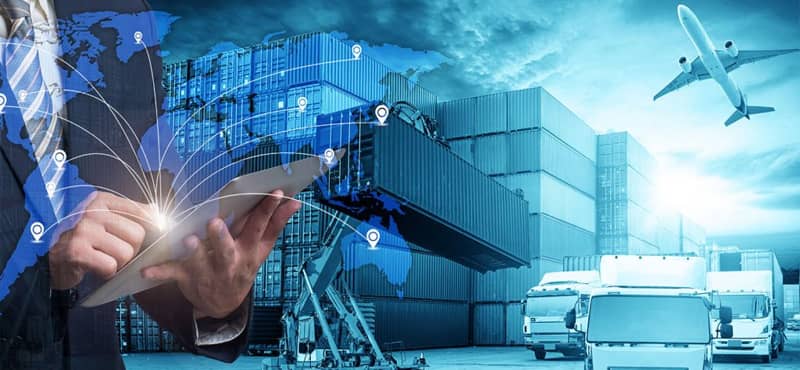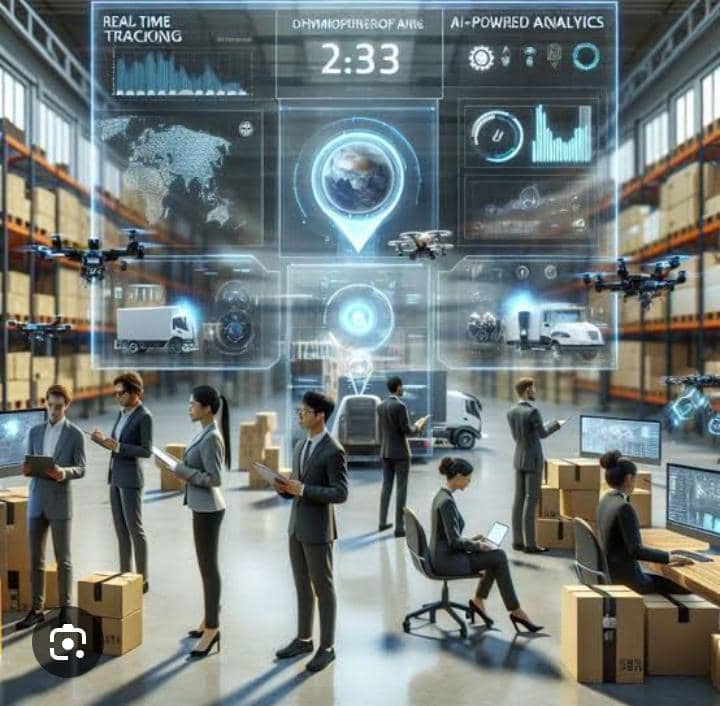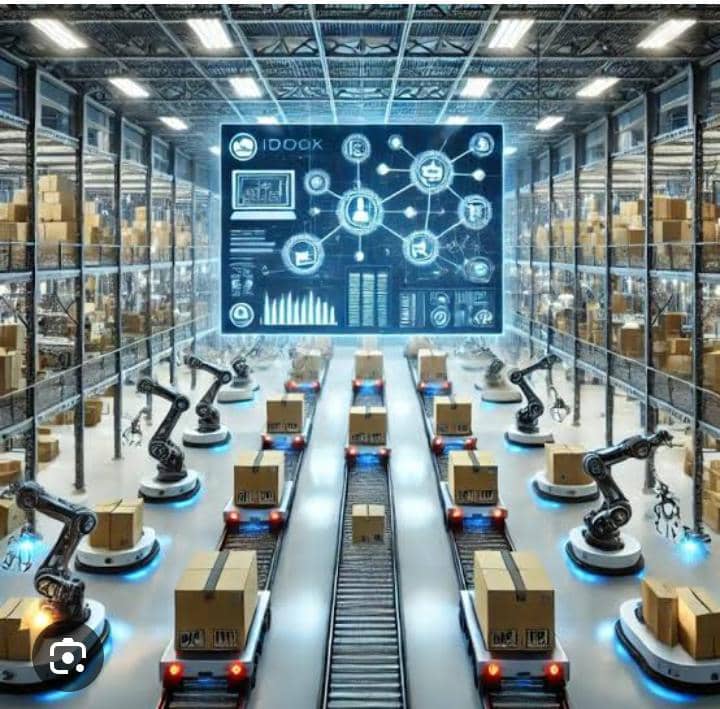Digitalization in logistics refers to the integration of digital technologies into all aspects of logistics operations, fundamentally transforming how goods are managed, transported, and delivered, it’s also involves the conversion of traditional logistics processes into digital formats. This transformation impacts various segments of the supply chain and has led to improvements in efficiency, transparency, and decision-making, real-time data collection, analysis, and communication, which helps companies optimize routes, manage inventory more effectively, and respond quickly to disruptions. The overall goal is to increase efficiency, reduce costs, and improve customer satisfaction.

KEY TECHNOLOGIES IN DIGITALIZED LOGISTICS.
1. Internet of Things (IoT): Sensors and devices are used to track shipments, monitor conditions (such as temperature or humidity), and provide real-time updates.
2. Artificial Intelligence (AI) and Machine Learning: These technologies analyze data to optimize routes, forecast demand, and predict potential disruptions in the supply chain.
3. Big Data Analytics: Vast amounts of data from different sources are aggregated and analyzed to support decision-making, helping to uncover trends and inefficiencies.

4. Cloud Computing: Cloud platforms enable the storage and sharing of data across the supply chain, facilitating collaboration among partners and stakeholders.
5. Blockchain: This technology is being explored for improving traceability and ensuring secure, tamper-proof records of transactions and shipments.
6. Automation and Robotics: Automated warehouses, drones, and autonomous vehicles are examples where robotics streamline operations from sorting to delivery.
BENEFITS OF DIGITALIZATION.
1. Enhanced Visibility: Real-time tracking of goods allows for better monitoring and faster responses to delays or disruptions.
2. Improved Efficiency: Automation and data-driven insights reduce manual processes and streamline operations, leading to faster turnaround times.
3. Cost Reduction: Optimized routing, inventory management, and reduced human error contribute to lowering operational costs.

4. Customer Satisfaction: With better tracking and faster delivery times, customers benefit from improved service quality.
5. Agility and Flexibility: Companies can rapidly adapt to market changes or unexpected events, such as supply chain disruptions, with agile digital systems.
CHALLENGES AND CONSIDERATIONS.
1. Data Security and Privacy: As more data is collected and shared, ensuring robust cybersecurity measures is essential to prevent breaches and protect sensitive information.
2. Integration with Legacy Systems: Many logistics companies still rely on older systems that may not easily interface with modern digital technologies, requiring significant investment and transition strategies.

3. High Initial Investment: The upfront cost of adopting new technologies can be substantial, although the long-term benefits often justify the expenditure.
4. Skill Gap: There is a growing need for workers who are proficient in digital tools and data analysis, which necessitates training and sometimes recruitment of new talent.
FUTURE TRENDS.
1. End-to-End Digital Supply Chains: As more players adopt digital solutions, fully integrated supply chains that seamlessly share data from manufacturer to consumer are becoming more realistic.
2. Sustainability Focus: Digital tools are increasingly used to optimize routes and reduce waste, contributing to greener logistics operations.

3. Advanced Analytics and Predictive Maintenance: The future will likely see even more refined predictive tools that can foresee equipment failures or disruptions before they occur.
4. Collaborative Platforms: Digital ecosystems that allow multiple stakeholders—from shippers to carriers to retailers—to collaborate in real time will become more prevalent.
CONCLUSION.
Digitalization in logistics is not just a trend but a transformative shift that enhances operational efficiency, reduces costs, and provides greater transparency across the supply chain. Some challenges till needs to be overcome, such as data security and privacy, skill gap, and the benefits make it an indispensable component for modern logistics. As technology continues to evolve, companies that successfully adapt to digital strategies will likely gain a significant competitive edge in the industrial word of logistics.